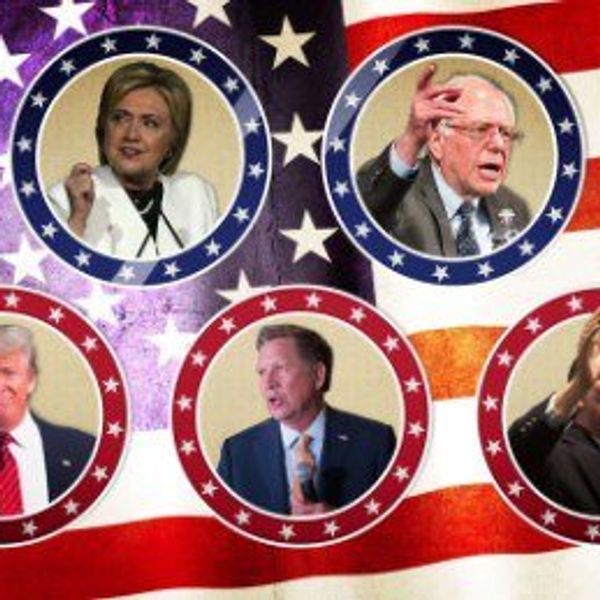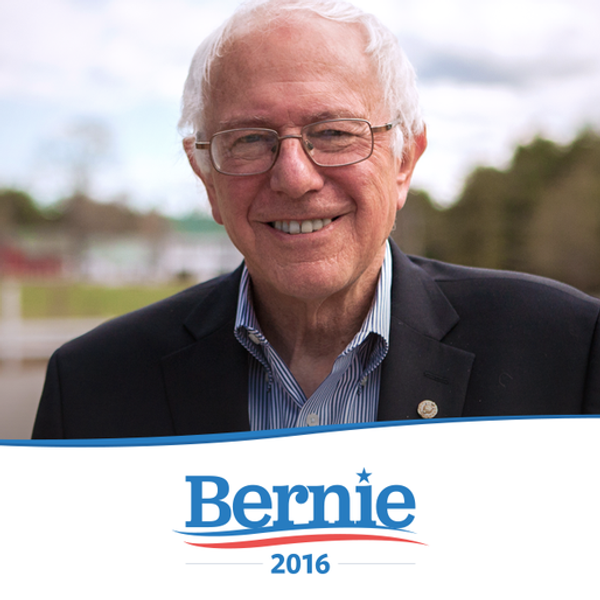Sanders, Trump, Clinton, Cruz— in this election it’s more evident then ever quite how polarized American politics have become. The Democrats’ platforms are more liberal than ever, the Republicans’ more conservative and no moderate candidate has had any sort of chance in the race for President, or in any major office. Political revolution or “Make America great again,” both sides are calling for change -- but perhaps the change we really need is in the way we tackle elections, and politics all together.
George Washington’s reign as president set many important precedents, including the two-term limit, and yet the the final advice he gave as the leader of our country has been completely ignored: not to split into parties.
It’s true, parties have their benefits, and knowing a candidate or official’s affiliation can help to have a basic understanding of who they are. It gives the public an idea of what that particular person stands for. Parties can make debates prior to elections more focused for one particular side, to understand different candidates’ approaches to a problem and to help the constituents of a party decide which candidate best represents their interests.
Unfortunately, I see more damage done by parties in the current climate than progress accomplished.
I was initially a Republican. Then I was a Democrat. Now I know that I’m neither, and I think the dichotomy we’ve been taught that we have to believe within the confines of is eroding away at American politics.
We’re lucky enough to live in a country where every citizen is eligible to vote; yes, it’s a right of ours, but it’s also a responsibility -- a responsibility to pick the best candidate, the most trustworthy candidate and the one who will do the most to benefit our country, one who we would trust to lead us should the times turn dark or become unexpectedly fortunate. The two party system leads many people to vote strictly along party lines, seeking out solely the tiny R or D next to each name before making their decision, and that’s not how it should be. Every councilperson, congress member, senator and presidential and vice presidential candidate should be analyzed as a person and a politician; we aren’t voting for parties, we’re voting for people, and we need to start putting more of a focus on understanding each individual candidate and not ignoring half of our possible choices because they don’t precisely fit the platform we support.
This mindset is increasing the unwillingness to compromise between parties, and making the polarization of our nation spike like never before. Both sides of legislators are so worried about being loyal to their party that Democrats won’t vote for “Republican” bills and vice versa, and it’s only hurting everyone involved. More at the core of our current state is that the only way for politicians to be successful is for them to be affiliated with one of the two parties, and to be as far to the right or left as is humanly possible. While these candidates seemingly “embody” party ideals, they tend to be more unsuccessful in passing legislation, and lead to such 50/50 results in polls such as those of Sanders v. Trump; a less polar candidate would be far more apt at gaining the moderate and independent vote. It becomes difficult for people to vote for those who are somewhat in line with their thinking, but these more moderate choices are more likely to pass legislation that would please both sides, while I’m sure there would also be some to disappoint both sides. We need compromise, or we won’t progress as a country.
This brings me to the group most shunted by the bipartisan set up: the independents, the nonaffiliated, the outliers. As an independent, especially seeing such extreme candidates in the two main parties, it’s frustrating to know that any third party or unaffiliated politician I choose to vote for won’t have much of a chance. I don’t like it, but the way our election system is, it’s true at the moment. Similar to what I said earlier, more people voting for independent candidates would benefit everyone because everyone would be more likely to have something go the way they believe it should, being that independents typically have some liberal ideals and some conservative ideals. Perhaps the tax bill the Republicans want passes and the gay rights bill the Democrats want passes, etc.
Currently, independent candidates have no visibility, no inclusion in the debates, no political coverage and most famously, millions of people feel that to vote for a third party is to “waste their vote,” because the difference in the percentage of votes is so drastic. If we change this things, we can change how far to either side our country is constantly swinging, and we can have a shot at having unaffiliated officials in our government.
Of course, we haven’t had a non-partisan president since Washington himself, and even if it were easier for independent candidates to have a fair shot, they may remain unelected, but the fact is that when surveyed consistently, more people identify as independent than Democrat or Republican, and in our generation more of those who are party affiliated identify as moderates of their party than ever. Something is wrong when no leading candidates accurately reflect the views of those between extreme right and extreme left.
So what can we do?
Many other countries have what’s called a ranked or alternative voting system, in which voters rank the order in which they support candidates, with as many numbers as the candidates they would be willing to give their vote to. If their first choice for the given office doesn’t have enough votes, their vote goes to their second choice, and so on, so that no one’s vote is wasted. The rankings would be able to cross lines between parties, and give a shot to candidates who don’t identify with either party.
Another effective system could be a proportional representation system. Say 40 percent of California is Republican, 40 percent is Democrat and 10 percent is independent. 40 percent of congressional seats would then be Republican, and so on. This would also be applicable in Presidential primaries in states like Florida which currently have a winner-take-all system; ie. whether Hillary beat Bernie by one percent or Trump beat Rubio by two, they both got the entirety of Florida’s electoral representation in the primary. If we implemented a system that divvied up these votes proportionally, we would have a more fair holistic representation of what everyone votes for, across the country.
At the end of the day, the biggest things we can do are on an individual level. We have to each seriously consider our duty to elect the best possible officials, we have to consider every candidate and not blindly ignore them because of their party affiliation and we have to consider what the endgame results of each candidate’s election would be, for everyone involved.
So yes, all of our candidates this election have preached and preached that we need a change. But the very fabric of their campaign tactics, the hearth of their success that is their polarized claims that confine voters -- that is what we need to change.





















